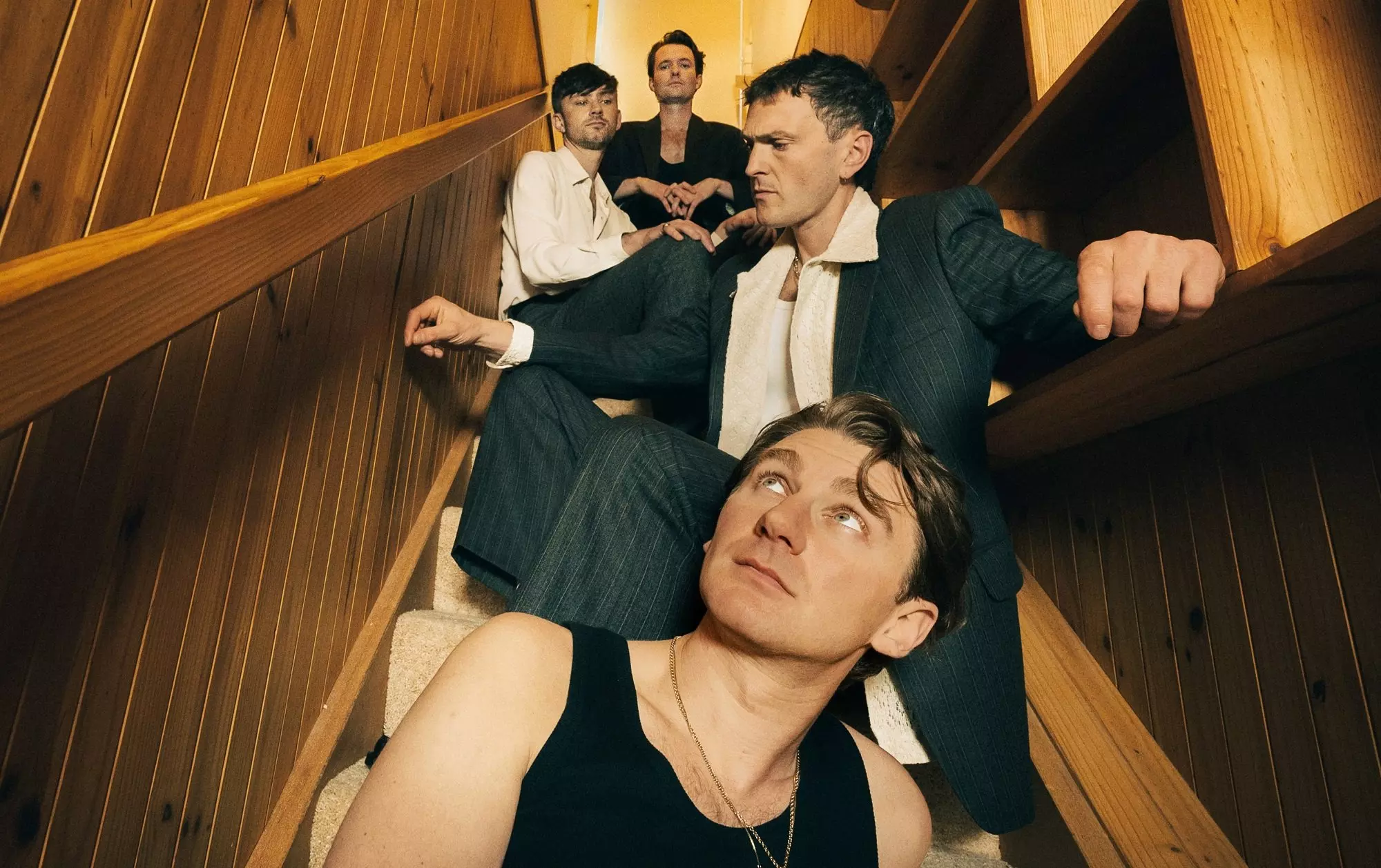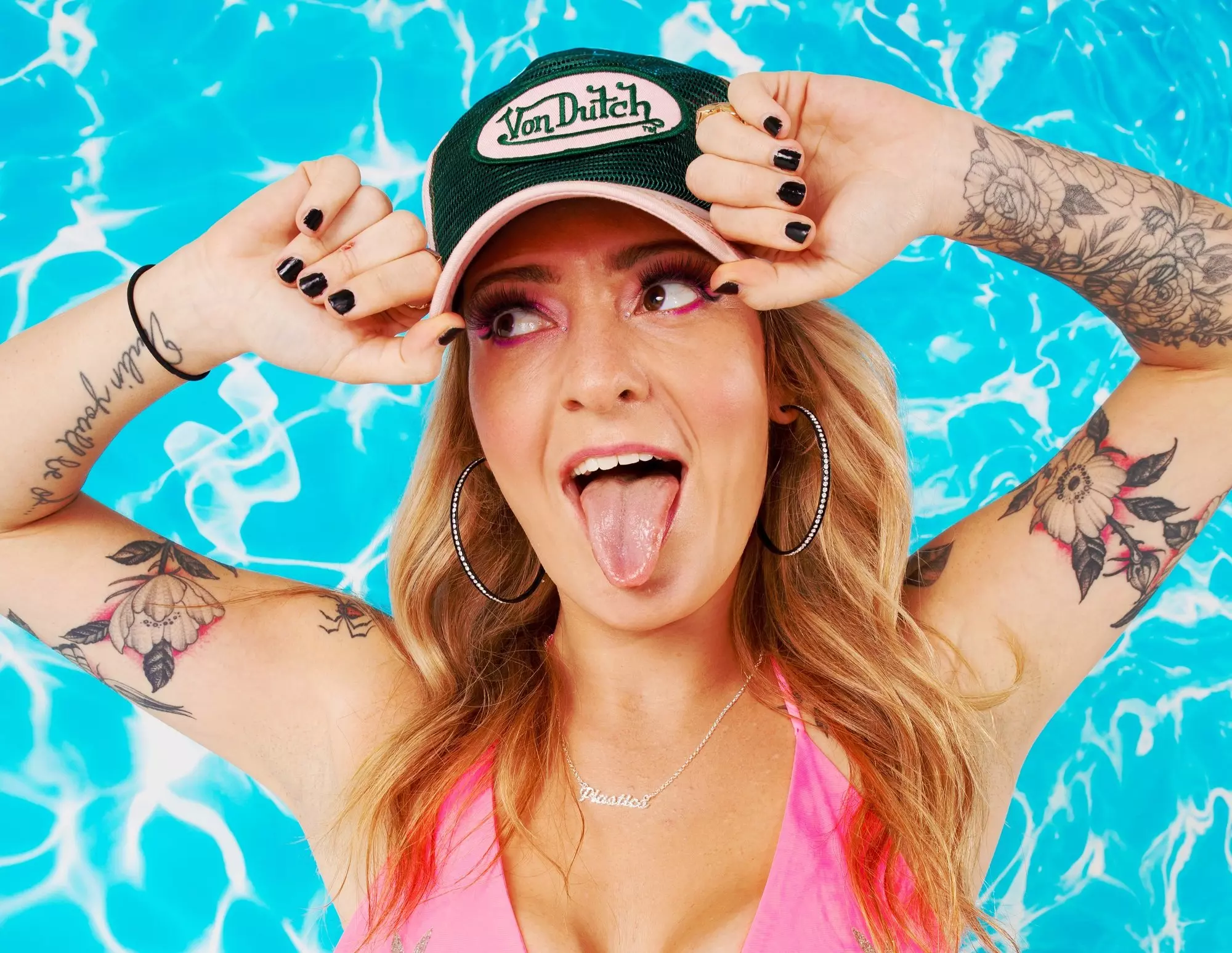Photo: Luke Rogers
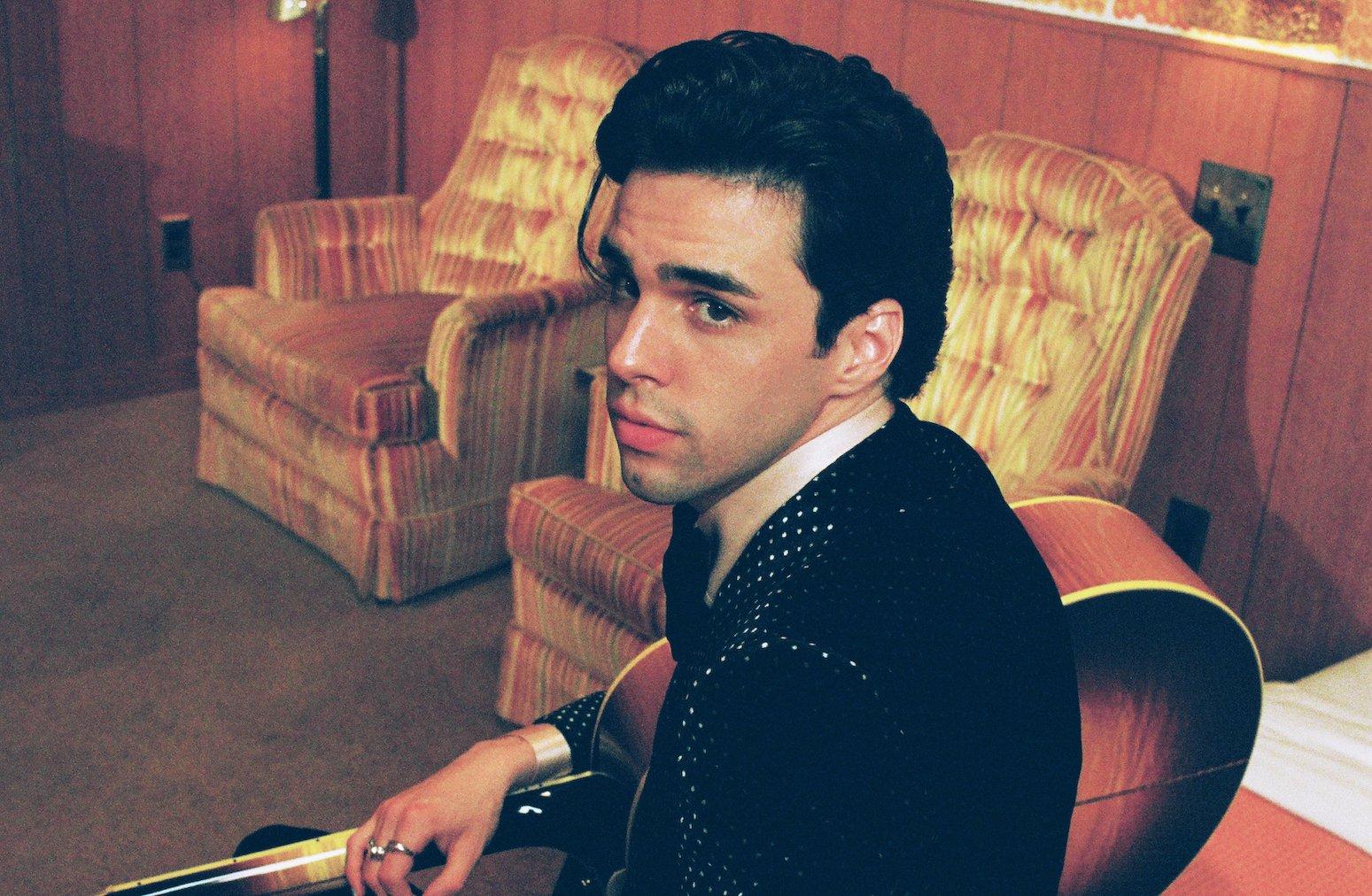
interview
Stephen Sanchez On His Love For Retro Music & Why His Next Tour Will "Change Everything"
After a wildly successful 2022 thanks to his breakout hit "Until I Found You," Stephen Sanchez is selling out venues around the country — but in his eyes, this is only the beginning.
In the midst of his first-ever headlining tour, Stephen Sanchez is already looking to the future. "This first tour is a slow build into the next tour," he teases to GRAMMY.com, alluding to his recently announced October-December stretch. "The fall is going to change everything — it's going to feel like you've stepped into the '50s and '60s."
For Sanchez, embodying an old-school vibe has both defined his career and propelled his success. Case in point: his breakout single "Until I Found You," which became a radio staple last year and has since garnered more than more than 1.7 billion global streams. The lovestruck ballad boasts his crooning voice and a classic chord progression with an echoing electric guitar, creating a sound that conjures up a past generation.
Although he's just 20 years old, Sanchez's love for artists like Frank Sinatra and Nat King Cole stems from his childhood. He's filtering those retro influences through a distinctly modern lens — and a sensitive one at that.
"[Those artists] gave me a sense of direction as to how to fall in love with somebody and give my love to somebody," Sanchez says. "Love's this passionate fight, but it's also a surrender. Without that music, I wouldn't know that."
Now, armed with a co-sign from Elton John — more on that later — Sanchez is riding high with a new single, the similarly retro "Evangeline." Just before launching his tour, Sanchez spoke to GRAMMY.com about his influences, success and the real-life story behind "Until I Found You."
"Until I Found You" is a song that's bursting with passion while coupled with a distinctly retro sensibility. How did it all come to life?
It all started after making a bad financial decision. I bought a black Rickenbacker guitar and an amp, and both of them cost me well over a couple thousand dollars. So I got home after buying the guitar, sat in my room and wrote "Until I Found You" that day in 15 minutes.
The lyrics are about a girl I was dating at the time, actually named Georgia [who is mentioned in the song]. I sent a demo to my label and my girlfriend, and that was it. Nobody really gave much attention to it, but then I posted it online and everybody paid attention to it. It took off and now it's almost a double platinum song, which is unreal.
Classic question for your classic song — what comes first for you, music or lyrics?
It's always lyrics. Nothing usually starts out as a song, but as a poem. I'm always trying to write the most beautiful parts of someone from my perspective.
Everyone must sing along to the song when you perform it live. Can you describe what it was like the first time that happened?
I burst into tears, honestly. I wrote all of these songs in my bedroom, I didn't think anyone would ever sing them back to me because they were only meant to mean something to one person. It's a wild feeling.
I feel like I wouldn't be doing my job if I didn't ask if you and Georgia were still dating…
We are not still dating. It's been exciting for the both of us to get to see the success of the song. She actually is on the recording of it — she sang the background vocals. But I do love that other people have attached their love to it because it's very much an immortalized time of our love.
It's hard to make a song that sounds classic, but also resonates with today's audiences. It seems like you found something new while also honoring the past. What are your takeaways from its surprise success?
Everyone's individual truths become universal, you know? I think when people get the chance to hear someone's love for another person, like my love for Georgia in the song, it resonates.
I didn't think "Until I Found You" was going to be anything more than what it was. I wrote it about her because I loved her, and the fact that people have taken it upon themselves to apply it to their own love stories is beyond me. So it's really special and we need more than that. We need more truth in music!
The song has such a classic feel, it made me wonder who your favorite artists were growing up?
The Platters, the Ink Spots, Frank Sinatra, and Nat King Cole all inspired me growing up. The love that they used to sing about is just amazing.
How did you initially get into that generation of artists? Did you have a relative who introduced you to them?
Yeah, my grandparents! They had a lot of land in San Jose, California that sat in between these two barns. Inside both of those barns are vinyl boxes everywhere. In the mornings, my grandma would make me breakfast and send me to those barns to pick through vinyls. It was an amazing thing.
What was it like as a kid listening to those artists while all of your peers — in school and the industry — probably have never been introduced to them?
God, it changed everything. I feel like I'm a big romantic and I give credit to that music as to why that is. It gave me a sense of direction as to how to fall in love with somebody and give my love to somebody. Love's this passionate fight, but it's also a surrender. Without that music, I wouldn't know that.
Your newest song, "Evangeline," is another passionate love ballad that transports listeners back into a bygone era. In addition, you have your debut album in the works. What can you reveal about either?
I had just got back from touring Europe when I went into the studio with Nick Lobel and Trent Dabbs who are both amazing songwriters and engineers. We wrote the song in 15 minutes using a sample of Bobby Goldsboro's "Honey," taking the first 10 seconds of that song, building the track and writing the song that day.
As for my debut album, it's 12 songs and set between the years 1958 and 1964. That's all I can really say about it!
The week after "Evangeline" came out, you attended your first GRAMMY weekend. What was that like?
It was really unreal. I didn't feel like I was there actually, I felt like I was somewhere else; like I was floating away.
I know you also rubbed elbows with Elton John and wound up getting to know him?
Yes! He's so supportive and I'm grateful to call him a friend. We sat next to each other at the MusiCares [Persons Of The Year event] and sang "My Girl" to each other while The Temptations played on stage in front of us. He also teased me when I freaked out about Brandi Carlile. He does this thing where he gives my face a little smack when I see him. It's an honor to know him.
You just embarked on your first nationwide tour of the US. What has that experience been like for you?
This first tour is a slow build into the next tour. We're playing all the music that is out right now and keeping things in the singer/songwriter vein with these live shows for the time being.
The next tour we're planning [in the fall] is going to change everything. It's going to feel like you've stepped into the '50s and '60s. But touring is really fun — and I'm very tired.
How Making 'Good Riddance' Helped Gracie Abrams Surrender To Change And Lean Into The Present
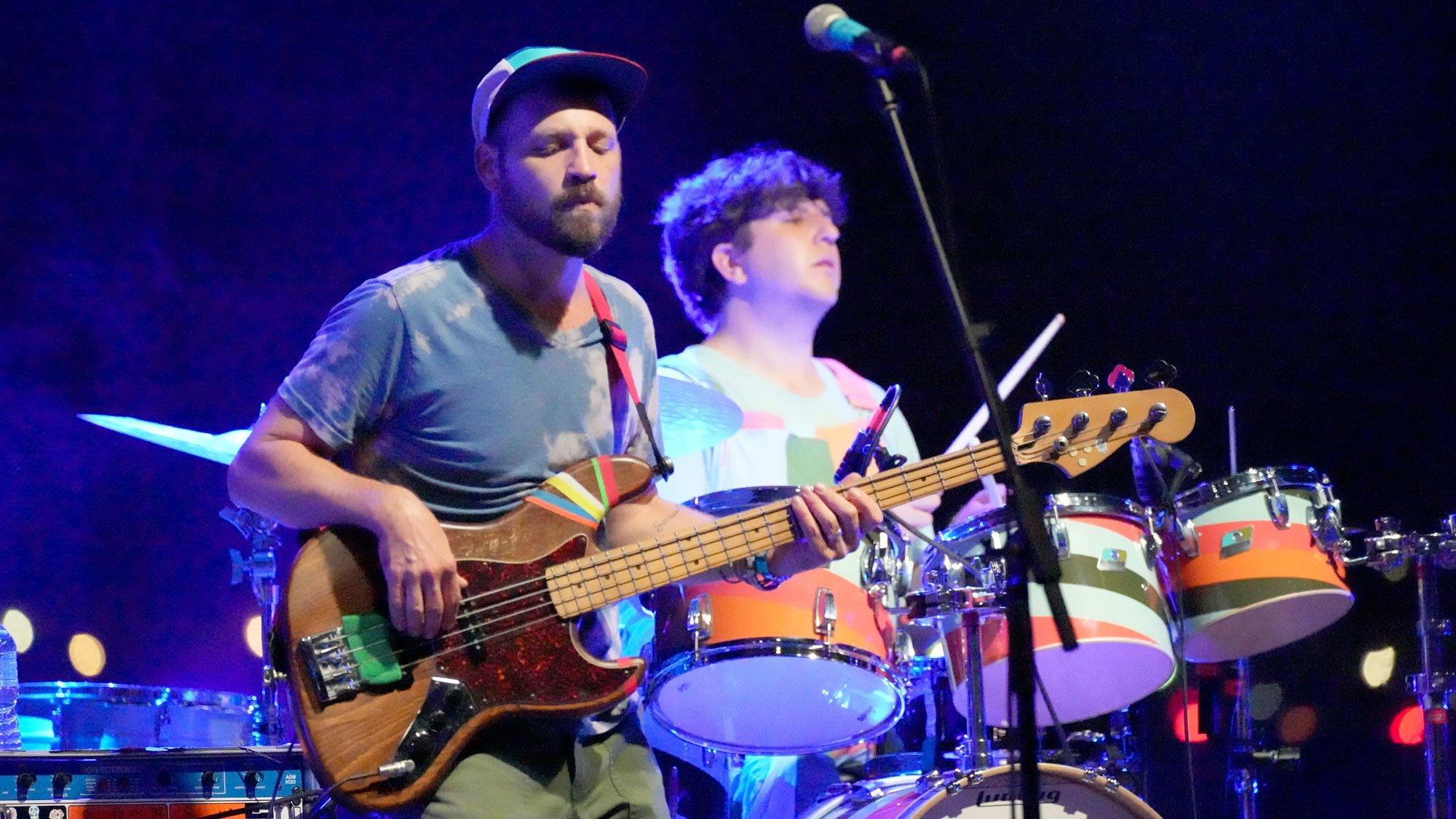
Photo: Jeff Kravitz/GettyImages
interview
Still Barking After All These Years: Dr. Dog On Low-Key Longevity And Their New Self-Titled Album
For two decades, Dr. Dog have enjoyed a dedicated fanbase and quiet resilience — although maybe not critical acclaim. Their new self-titled album shows that they've stayed not only consistent, but creatively lively; drummer Eric Slick talks all about it.
At the end of 2019, Dr. Dog decided they'd had enough of the touring grind. After all, the many-hued, many-styled psychedelic band had been going hard for two decades.
"It just got tiresome, and the other guys in the band had kids," Eric Slick, their drummer since 2019, tells GRAMMY.com. "I think there was just this conscious decision to be like, 'Maybe we need to take a breath.'"
This amounted to a fork in the road for Dr. Dog, who have always occupied a funny space in the indie-verse. In a revealing 2016 Talkhouse essay titled "The Counting Crows Taught Me Not To Give A F— About the Critics," Slick acknowledged that music press has written "unspeakable reviews" over the years, unfairly characterizing them as safe, repetitive and wary to take risks.
One spin of Dr. Dog's new self-titled album — which arrived July 19, their first in six years — should disabuse you of this notion. Sure, it's a continuation of their gently trippy melodic soul aesthetic, but it also shows how they've subtly developed on it.
"It's not like a typical Dr. Dog record where I go in the studio and I'm just bashing the crap out of the drums, and hoping that whoever's mixing it knows what to do," he explains. "We all had to play really sensitively to each other, because there's no headphone mix, and we allowed any kind of bleed through the microphones to become part of the ambient noise of the record."
Dr. Dog arrives during a critical year for Slick. An active solo artist on top of Dr. Dog, session work and other group efforts, he released an eccentric new album, New Age Rage, back in April. Naturally, working with Dr. Dog has incontrovertibly influenced his solo work.
Plus, Dr. Dog's last show at press time — a sold-out Colorado amphitheater gig — was a watershed for Slick, as the historically timid singer got to sing his first-ever lead vocal on a Dr. Dog album — the lovely "Tell Your Friends" — live onstage for the first time, the crowd singing every word.
Read on for Slick's account of that special moment, as well as all things Dr. Dog.
This interview has been edited for clarity.
You've written about not being able to catch a break from the critics, but Dr. Dog just performed a sold-out show at Red Rocks. What does that tell you about music critics' authority — or lack thereof?
I mean, with Dr. Dog, I feel like our fan base has gotten riled up by the fact that critics don't tend to like us. Even when they do like us, there's usually some sort of backhanded compliment or there's some issue that is taken with the band's reluctance to change, or at least what it seems like on the surface.
I think the constant criticism that we get is that our albums don't tend to show a lot of growth. Maybe if you're not paying attention that might seem true, but I feel like we put a lot of emphasis on trying new things. It's just like we sound the way that we sound.
[Founding member] Scott McMicken is kind of a musical genius, isn't he?
Scott is extremely prolific, and I used to live with him back in West Philadelphia in, like, 2010. I would go to bed, and then there'd be a CD slipped underneath my door of the 12 songs he wrote that night.
He's just one of those people. He's kind of like Robert Pollard in that way. He has no filter, and he's so prolific, and loves to record. He loves to record on his Portastudio. It's his life, and he's so good at it, and he's so good at tricking himself into creating new context for his art, and it's really inspiring to be around.
I could tell certain directions he was pulling things from. Like, some deep Stax Records vibes…
Oh, yes, yes, big time. He's been really into Stax and also Sun Records the last couple of years. He's just been diving into the production values on that stuff. He also loves all the Studio One stuff, too, like super into dub and the late '60s, early '70s era of Jamaican music. He's way, way into it.
[Bassist and co-founder] Toby Leaman is so good, too. For those less familiar with the band: how would you describe their push and pull as writers?
Scott, I think, always gets sort of pegged as freewheeling — lots of colorful chords and production. It's more kaleidoscopic. And Toby's songs are sort of classic — very open-chorded, "you can hear them in a big space" kind of songs. And I think Toby has also gotten really good at designing songs for the road — for big sing-alongs.
I think they're just so talented at what they do. I used to say that Scott's songs were kind of like a rocket taking off. They would start really small, and then by the end they're huge. And with Toby it's like a big emotion for the whole thing, if that makes sense.
And maybe Toby's songs are a little bit more even-keeled in how they're put together, and how they're structured, but that emotion is really felt throughout the whole thing — whereas Scott's more of the story guy.
Where would you say Dr. Dog fits into that "class of 2009" milieu — whatever you want to call it? How has everything shaken out as per the band's role in the landscape?
A lot of the bands that we toured with are not really around anymore, and that's kind of an interesting thing. How have we endured, but a lot of other great bands aren't still around? I think about that a lot.
I also think about — because we didn't have any kind of critical acclaim — maybe we went unscathed a little bit. In regards to something like Pitchfork, there were some do or die moments for bands, and there were some bands that we're friends with that had their careers completely killed by a certain review.
And for whatever reason, because we didn't bring any attention to [our music]it, and we didn't say anything on social media about it back in the day, we just kind of accepted it for what it was.
I heard there was All Songs Considered about our new record that came out the other day, and they were kind of placing us in the same category as the Mumford era. I never really saw that comparison, but…when you're so in it, it's hard to know.
"Tell Your Friends" is so beautiful. What led to your sneaky George Harrison role in the band?
Well, I also wanted to respect the fact that we already have a two-songwriter band.
Everybody in the band writes songs. It's already enough if you've got one, but if you've got two great songwriters in the band, how do you approach them — the classic trope of Phil Collins coming forward during rehearsal ready to sing now, or whatever it is.
I had that song left over from the New Age Rage sessions, and obviously it didn't fit on that record at all, and I was like, What if I just send it to the guys? And I did, and I was super nervous about it, but then everyone immediately was like, "Yeah, let's do it. Let's try it."
So, by the time we got to the cabin in Forksville, Pennsylvania, where we made the record, everybody was really enthusiastic about the song. And then it kind of dawned on me that this song sort of encapsulates how we're all feeling about our relationships with each other. So, it feels like a nice little bow on the sentiment for the record.
You had posted on Instagram about the powerful moment of singing "Tell Your Friends" to that sold-out audience, and hearing the audience sing along. I know you've had a lot of insecurity and baggage with singing over the years, even hiring vocal teachers. Can you talk about your journey on that front?
I had a teacher growing up through the School of Rock program that actively discouraged me from writing songs and singing. So, I kind of feel like this whole racket of me writing songs is kind of like a spite store. [Laughs.]
I think I started doing it just to prove a point, and then it's turned into this whole other thing. I'm in love with the process and I love doing it, and I think it was there all along, and I was just kind of stuffing it down.
I started putting out songs for real in 2014, and still had years and years of stuff to work through with that, and also I just started doing it, because I had this impulse to do it, and it became clear pretty much right off the bat that I needed to start taking vocal lessons and take it seriously, because I was blowing out my voice every night.
So, eventually I started taking lessons with a teacher in Nashville who's like a gospel/CCM teacher, and the first lesson, I walked in there and she was like, "If you could sing anybody in the world, who would you sing like?" And I was like, "I don't know, Stevie Wonder or Prince." She's like, "Great, we're going to sing 'Purple Rain' right now."
And I was like, "Wait, what? I have to sing 'Purple Rain' in front of you right now?" And she's like, "Yes, so let's go." I was just like, "Holy s—, I'm not ready to sing 'Purple Rain.' I don't know the words to the song, really."
She really kicked my butt, and it led to me strengthening my chords, and it honestly gave me the confidence to come to Dr. Dog with this song, and then to be able to perform it.
The first time performing it in front of 10,000 people was pretty intense, and I think as it was happening, the beta blockers kicked in.
It was just really special and meaningful, and it just felt like the culmination of these 10 years of just really putting in the work, and taking lessons seriously.
It's the fulfillment of this thing that has been gnawing at me my whole life — which is to be able to write songs, to be able to perform them, and now I get to do that within the context of these people that I care about so much.
More Alternative Music News
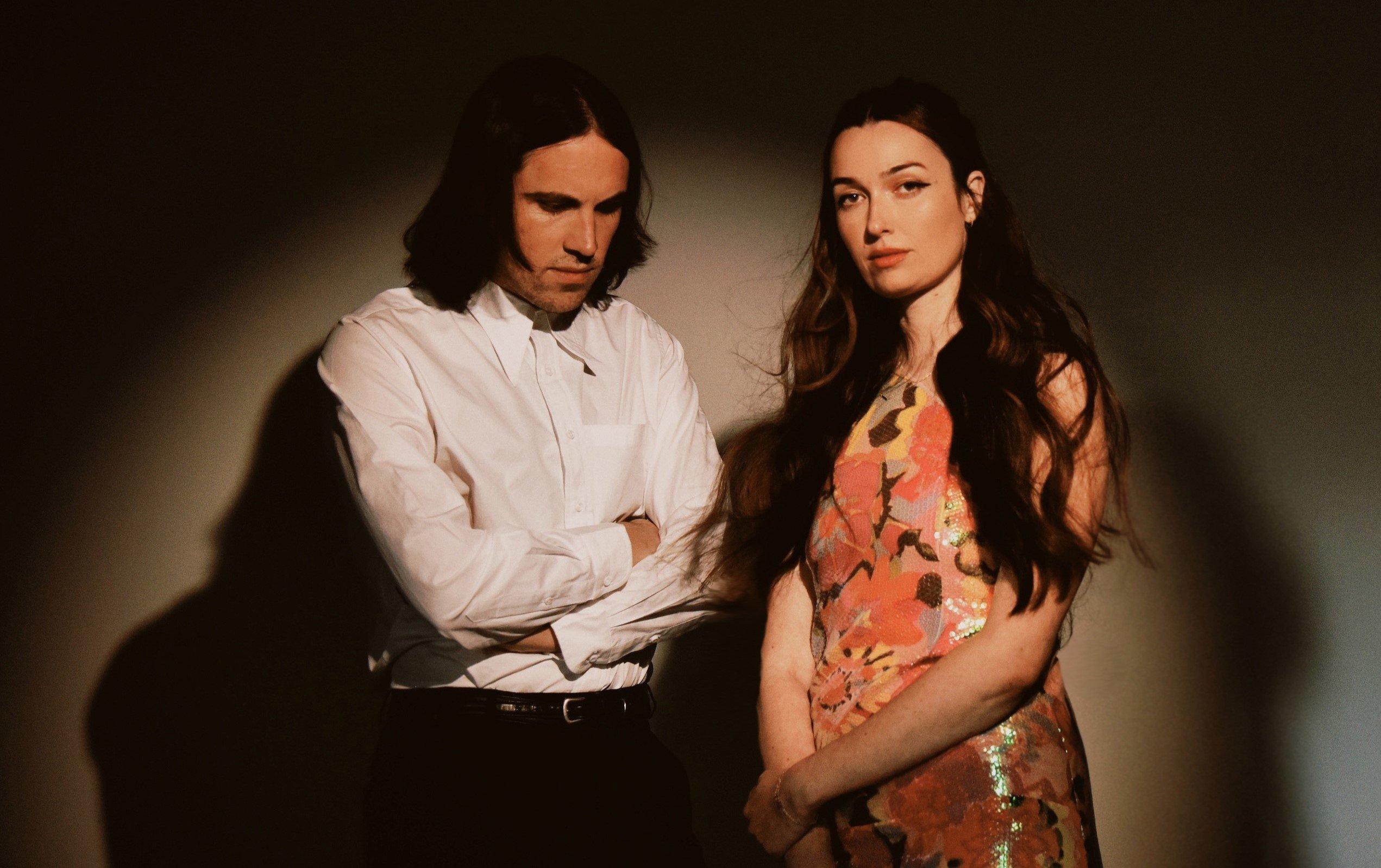
Photo: Shervin Lainez
interview
Cults' Evolution: Madeline Follin & Brian Oblivion Discuss Their Upcoming Album 'To The Ghosts'
Out July 26, Cults' new album reflects their 15-year journey as artists. Ahead of their Lollapalooza performance and U.S. tour, the duo discuss how they've pushed their sound forward.
Over the past 15 years, Cults have captivated audiences with their atmospheric, layered compositions that pack a pop-friendly punch. Now, on the brink of releasing their fifth album, To The Ghosts, on July 26, Madeline Follin and Brian Oblivion reflect on their journey and new creative freedom.
While their previous albums required the duo to stick to deadlines precariously organized between tours, the pandemic provided new circumstances. Freed of distractions and obligations, Follin and Oblivion traveled to Los Angeles in 2022 to join up with their longtime producer Shane Stoneback (Vampire Weekend, Sleigh Bells) to craft an album that looks back on their past while pushing their sound ahead.
"We don't have the sales pitch for the album down yet, but there's no other band that sounds like us," says Oblivion. "We're digging into our thing, and if you're into anything we've done before, you'll love this one."
Adds Follin, "We're like no other."
The album title is addressed to the ghosts of both Oblivion and Follin's past selves. As Oblivion explains, their four prior albums were time capsules that reflected the period in which each album was written and recorded. This release is something different.
To The Ghosts is a personal landmark for Follin, particularly. In 2020, upon the release of Cults' fourth album Host, she admitted that she'd been too shy to bring her own songwriting and demos to the table for the band's first three albums. It was Stoneback's encouragement that altered the creative process for the duo, resulting in their most collaborative album to date, and significantly more reliance upon live instrumentals in the studio.
"We spent a month in an AirBnB then a week in the studio with Shane," explains Follin.
"It was a mad dash to replace all the midi instruments with real ones, so we were running around playing vibraphones, organs, and guitars and all these things we'd recorded in demos and laying it all back down in one week."
It may have been a mad rush at the end, but over the years the duo have refined their formula for making albums. They're no longer the giddy art students and lovers making DIY music with no plans for world domination.
In 2010, Follin and Oblivion founded Cults and released their debut EP "Cults 7", followed by their debut self-titled album in 2011, which was similarly lauded. By the time their sophomore album "Static" arrived in 2013, the pair had freshly broken up and the themes of being creatively and emotionally stagnated resonated in dramatic, spacious orchestral compositions. They followed up with "Offering" in 2017, which was the first of the duo's albums to lean into optimism and a sense of embracing a more pop-friendly path.
That optimistic pop thread is picked up once more in "Crybaby", the first of 10 tracks that kicks off the new album. It launches with a lush, reverb-rich guitar hook and shuddering church bells, then shifts into a calypso beat and Follin's dreamy ode to escaping the modern malaise ("dry your eyes / turn off the screen"). Like the other catchy, bittersweet synth-pop numbers on To The Ghosts, "Crybaby" wraps up in close to three minutes.
The lengthy outliers are "You're In Love With Yourself" and the closing track "Hung The Moon," which runs over five minutes. Ending an album with an epic power ballad is their signature style and "Hung The Moon" bathes in drama, love, loss and redemption. "In a storytelling way, that's the only ending that makes sense to us, a melancholy resolution," Oblivion says.
To The Ghosts captures everything fans adore about Cults and they'll have ample opportunity to catch them performing live this year. The duo are set to return to Lollapalooza opening for Vampire Weekend on Aug. 4, followed by their own headlining U.S. tour the same month.
Ahead of their intensive touring schedule, the duo joined GRAMMY.com on a group video chat from their respective homes in New York’s East Village one evening, to discuss their upcoming release.
This interview has been edited for brevity and clarity.
You began working on this album during the pandemic. Tell me where you wrote and recorded material, and whether you did that together or separately?
Madeline Follin: We were writing and recording in Brian's spare room. Can you see him?
Brian Oblivion: This tiny room! [directs the camera around a room not much bigger than 7 x 10 feet].
Follin: I sat on that couch right there, and we spent a lot of time in that little room [laughs]. For the most part we were together for the entire thing.
**Madeline, you revealed that before making your fourth album Host, you were too shy to show your own music to Brian and producer Shane Stoneback. What broke that barrier down for you to fully participate in the creative process?**
It was really hard to get it out of me. I had really strong imposter syndrome. Even though Brian was just starting out, he had taken a few recording classes in college, so he knew a lot more of the recording lingo and ways of communicating technically. I didn't know, so I felt so nervous to even communicate what I wanted. Shane helped with that a lot in terms of translating what I wanted into the language of studio speak. Shane is unlike any other producer we've worked with. He heard me out.
Tell me about working with Shane Stoneback in terms of what you came into the conversation with, and what he contributed to shaping this album.
Follin: We thought that we were not going to work with Shane again because he'd largely gotten out of the business. During [the] pandemic he switched careers and began working in the movie business. So, we started working with a few other people, we were feeling it out, and it just wasn't working. We reached out to [Shane], and he randomly happened to have 30 days off and said if we can finish it in 30 days, we can do it. We said, "we're coming out tomorrow."
What were the creative decisions you made in the earliest stages, and how much did you change your mind or allow outside ideas in as you were working on this album?
Oblivion: It took us a really long time. We definitely wrote over 100 songs. I put it all on an iTunes playlist and it was over 6 hours of music. This time we got a lot of confidence from some of our older songs being popular with young people. We thought, maybe the time has come around where we can do exactly what we do, and that's kinda 'new' again. Once we went through all the permutations and landed on "Crybaby," which was the first song on the record, we just thought "this just feels like us, so let's lean into what makes us unique." The messing around period was just trying out new tricks and trying to expand our possibilities.
John Congleton has a real knack for guitar sounds and finding a rawness to live instruments. How did he come to mix this album?
Oblivion: I've been a fan of John's going back to Xiu Xiu and my high school days. He's a master of distortion, him and Dave Fridmann, that's their thing. They can make things really fuzzy and interesting, but also fit it all in the speakers in a way that's like a weird magic trick. We have kind of a vintage sound, and he gets that but he's also smart at highlighting things that are new. He mixed our last record too and from the first conversation, in which he said he thinks like a musician and wants to do something strange, we knew we wanted him.
Follin: We'd mixed with other people before but when we got a mix back from John, he was bringing out parts of the song that we hadn't even recalled leaving in there. He makes our songs sound new to us again. We have a lot of trust and respect in him, and we were trying for so long to get our schedules lined up.
Oblivion: We work on our music for so long that by the time it's ready for the mix, we really want to hear something new. It's refreshing for us that John hears something new in us.
Tell me about "Crybaby," the first single. What were you going for in terms of the music, the mood and the message?
Follin: We'd been working on that song as part of the 100 songs that didn't make it. Brian started working on that song and I had never heard anything like that come out of his computer before, and I was shocked. It's funny because people say it's so "Cults sounding", but I thought it was unlike anything we'd done before. It's got a '60s vibe, an island vibe, to me and I thought we needed to zone in on it.
Oblivion: That was at the point where we decided "let's see if we can still make Cults songs that hark back to the earliest record." I love the lyrics, they're simple and there's no hidden meaning, which is great. A lot of the music that we love and that inspired the start of our band, is really obvious but also really weird in terms of lyrics. "Crybaby" is a fun, whacky diss track.
Let's talk about what inspires you musically.
Oblivion: What gets me excited is spending a lot of time sharpening my Spotify algorithm, so every Monday I get a collection of weirdo emotional love songs about heartbreak, these obscure, catchy B-sides, and whenever I find a song like that, I'm so inspired. Something that has kitsch, gravitas, and a bit of humour, that John waters, David Lynch combination lights me up.
Follin: Right now, I'm really into a lot of Fontaines D.C. I felt a 'Cults' vibe from them even though they probably have no idea who we are. It's been a while since I've put on a song, and then I want to put it on again right away.
"Left My Keys" is an anthem for growing up. Tell me about your experience growing up in this band.
Oblivion: What makes this record different is that historically, we'd do all the music together over a span of two years, then Maddy would squirrel away to take a month or two to write all the lyrics, and that made the records very reflective of that moment, that time. For this record, because we had a protracted work schedule with nothing else to do, we took the time to slow down and look back. "Left My Keys'' is about being a teenager, and "Crybaby" is about things that happened a long time ago. Growing up is being comfortable enough to address your own past and realizing everything turned out okay so far. It's the first album where we're looking backwards and processing stuff from the last 15 years and before.
This album feels brighter than 'Host.' What happened between 'Host' and 'To the Ghosts' that explains the transition?
Oblivion: There's a lot of stuff we got out of our system. Host and Offering were both dark records, to me. It's wild to see that young people have picked up on "Gilded Lily" and that was such a crazy, cathartic song for us, so now it is crazy and cathartic for them. Most of my favorite bands are dark, sad bands, but that's not the totality of who we are. Being able to explore both sides of who we are was refreshing for us.
Follin: Personally, we were both feeling a lot better in our lives. We worked through a lot of anxiety, and because of the pandemic there was less partying, clubs, and bars. We had time to get healthier.
Oblivion: In a lot of ways our band is defined by our limitations. We have made music for 15 years, just the two of us with the same producer. But every time we make something new and interesting and all the things we think of as roadblocks help to provide a framework for what we do.
You released 'Host B-Sides & Remixes' in 2022, two years after 'Host.' Are there outtakes, or planned remixes, that are planned for this album too?
Follin: Definitely. 100 percent, we will be having something, but I'm not saying.
Oblivion: It's been really fun with the last few albums to put out songs that showed what would have happened if we went in a different direction. Sharing that part of the process with listeners has been fun.
You have a huge schedule of touring. Tell me about the plans and how you mentally and physically endure all the travel and performances. Does it get easier the more you do it?
Follin: No. Every single night, even if we're in the middle of nowhere, whether there's 15 people or 1000, I almost have a heart attack before walking on stage each night. You're crammed in a box with 7 people every night, there's a lot of emotions…
Oblivion: …and something is always breaking at soundcheck, it's like arghhhh! It's really hard, but when we put out Host and we didn't get to tour for two years, we missed that connection. The feeling of sharing your music with people allows us to move past it and get into something new. It's a big part of our personal growth and experience. We love touring.
Follin: In normal daily life, we hang out together. We hang out on weekends. It's not a forced thing. It feels so good to meet fans every single night, too, and hearing stories of how you affected somebody's life.
Most of the tracks on this album fall at around the three minute mark, and many end quite abruptly without fading out or dwindling down. Was that a deliberate strategy, and then why did "Hung The Moon" require that extended time as the finale?
Oblivion: It's verse-chorus-verse-chorus-bridge-chorus and you're done in three minutes!
Follin: Brian is very concerned about time, and I don't think it matters. I like shorter, he likes longer. We're compromising.
Oblivion: "Hung The Moon" is the big epic ballad that ends the record. We have had one on every record, it always ends with a big power ballad. In a storytelling way, that's the only ending that makes sense to us, a melancholy resolution. I love that song because it starts off as a sweet love song then it gets tense and spooky towards the end, but the lyrics stay really loving. It's that transition between the rush of an initial relationship and then the long game, where it's sweet and delicate, but it's also real life, so you're afraid that you'll lose things and you're trying to hold on to that original thing. So, the album ends on a bittersweet note.
Lollapalooza News
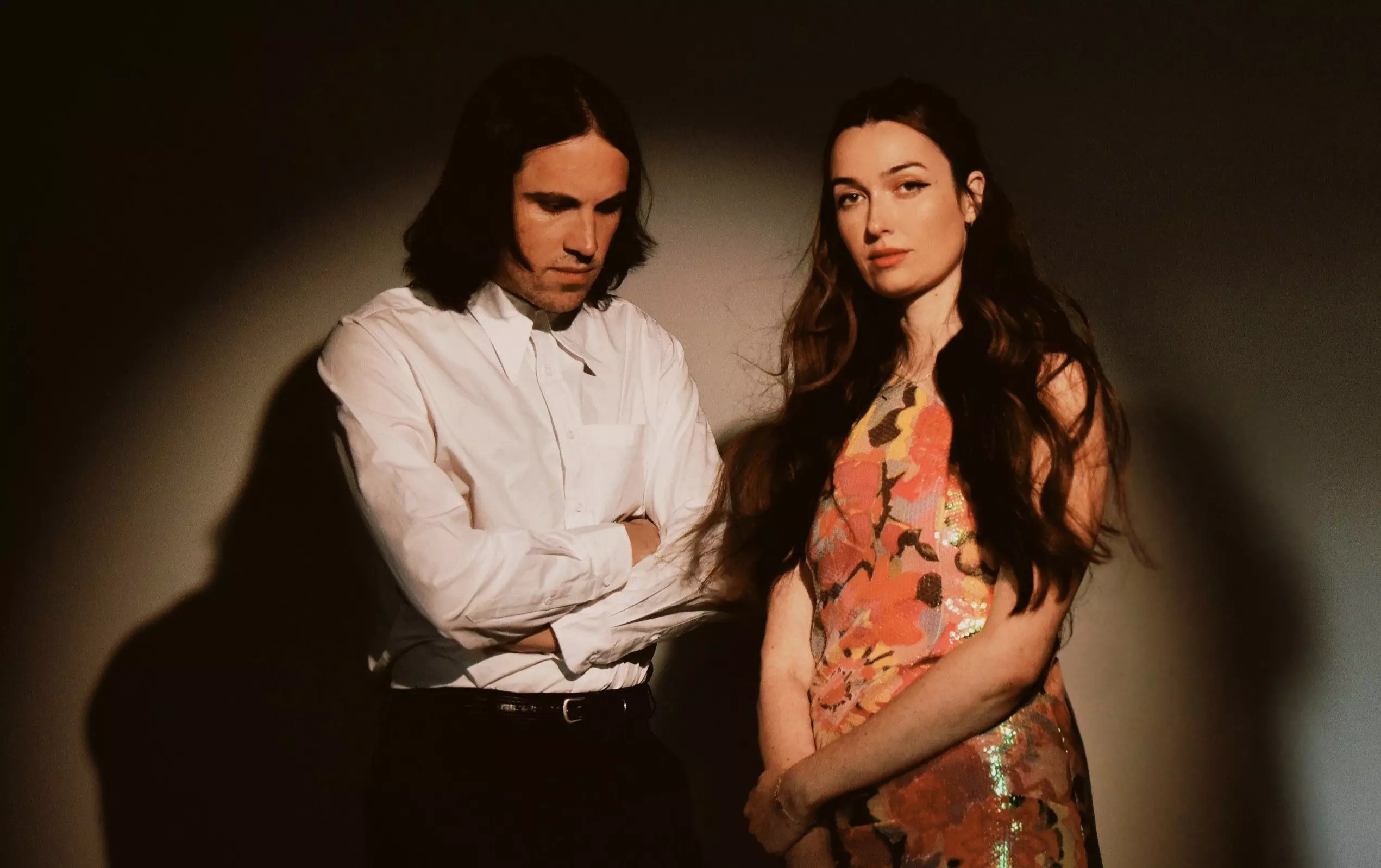
Cults' Evolution: Madeline Follin & Brian Oblivion Discuss Their Upcoming Album 'To The Ghosts'
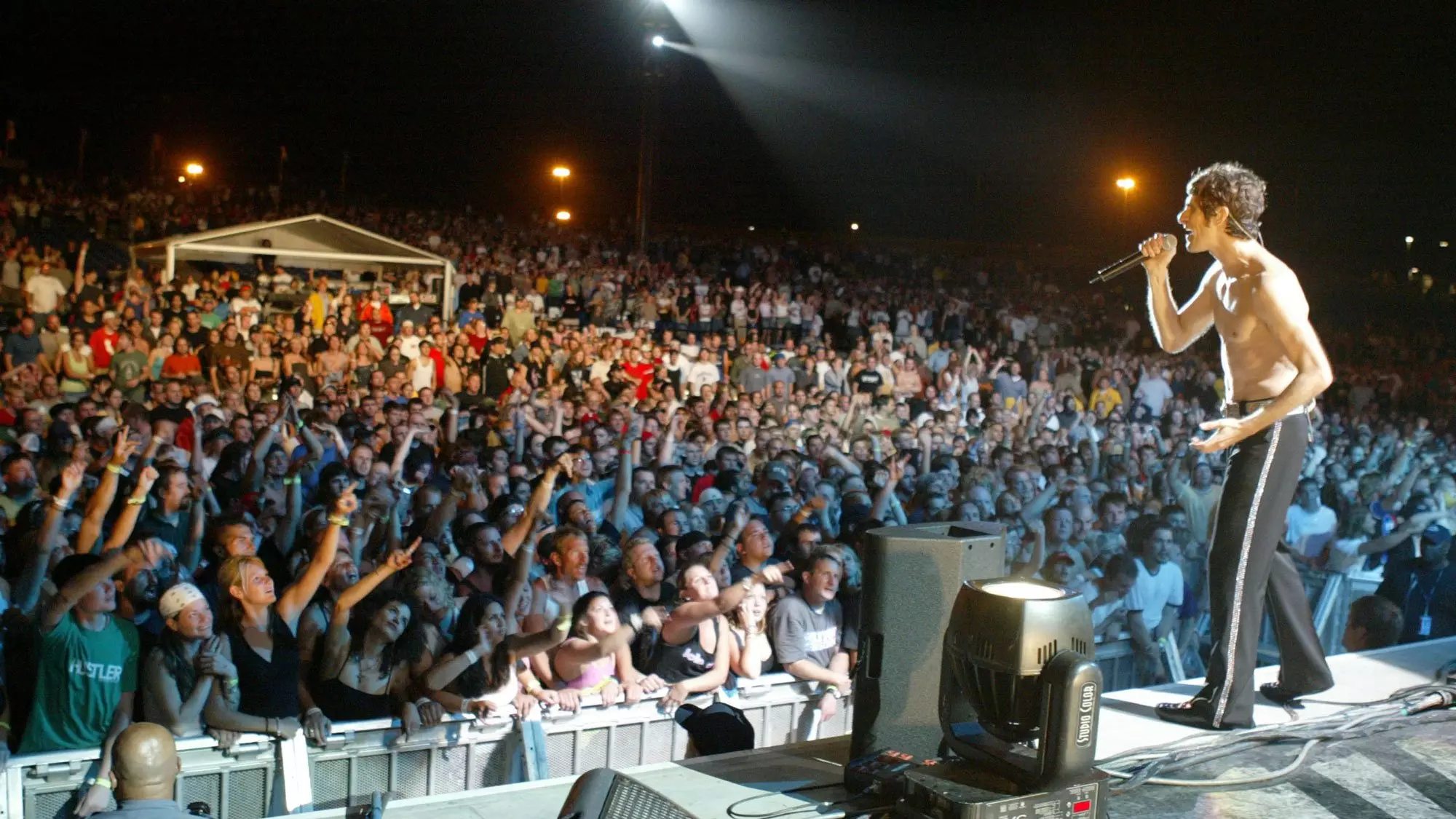
'Lolla: The Story of Lollapalooza' Recounts How An Alt Rock Fest Laid The Blueprint For Bonnaroo & More
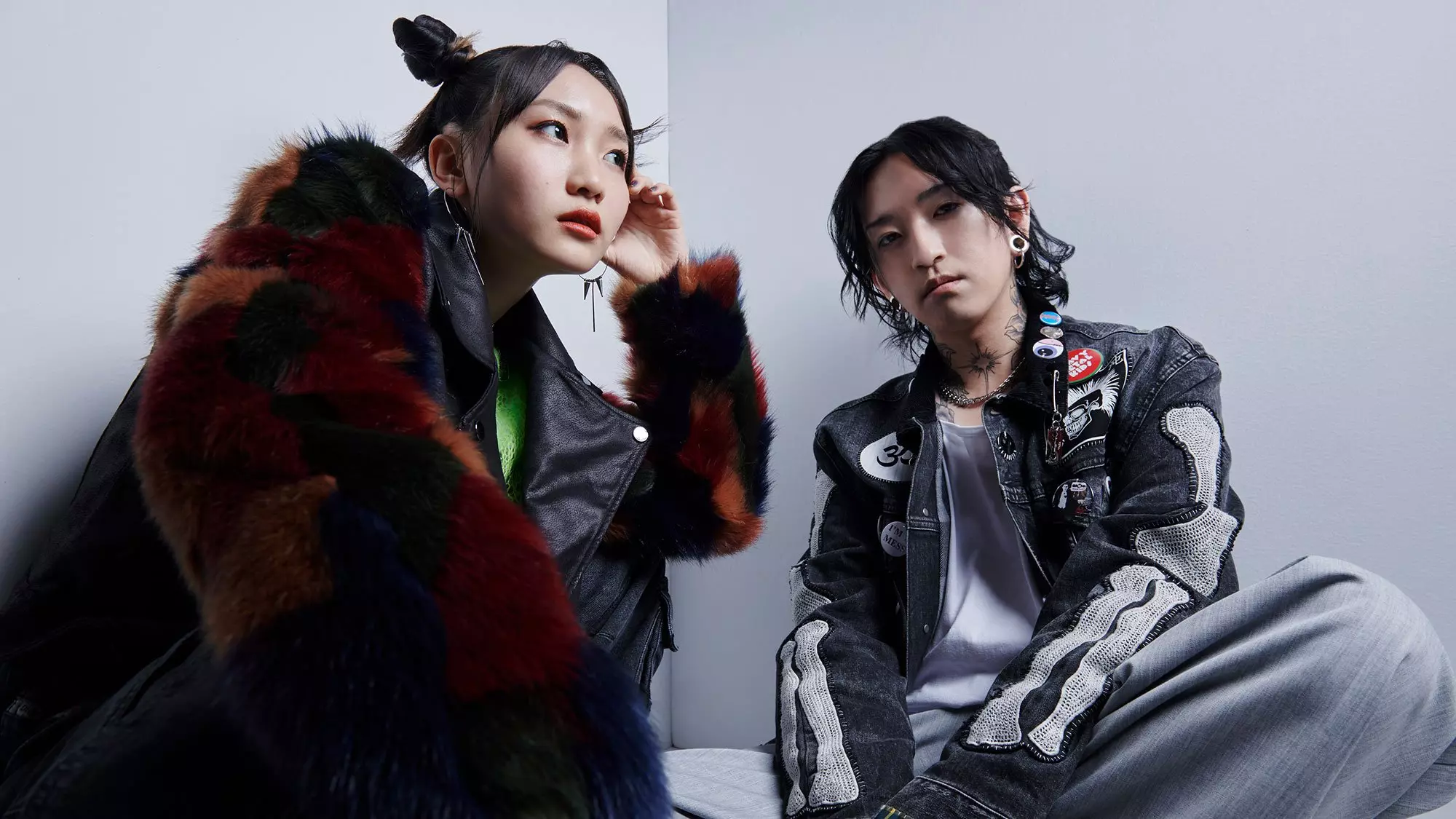
From Tokyo To Coachella: YOASOBI's Journey To Validate J-Pop And Vocaloid As Art Forms
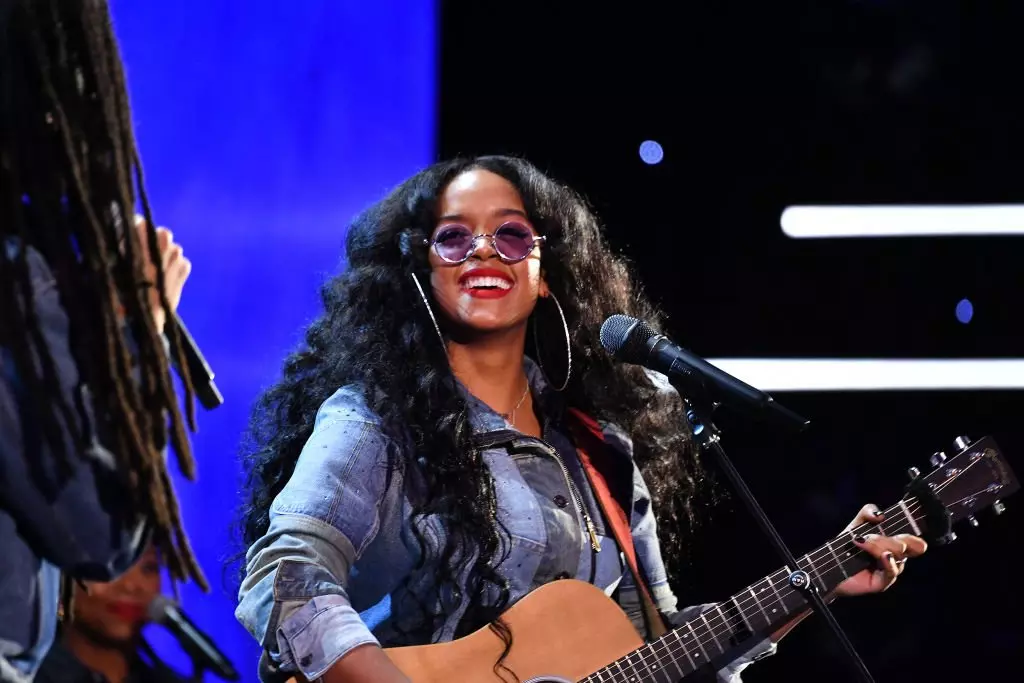
Lollapalooza Announces Lolla2020 Virtual Fest Celebration In Place Of Cancelled In-Person Event
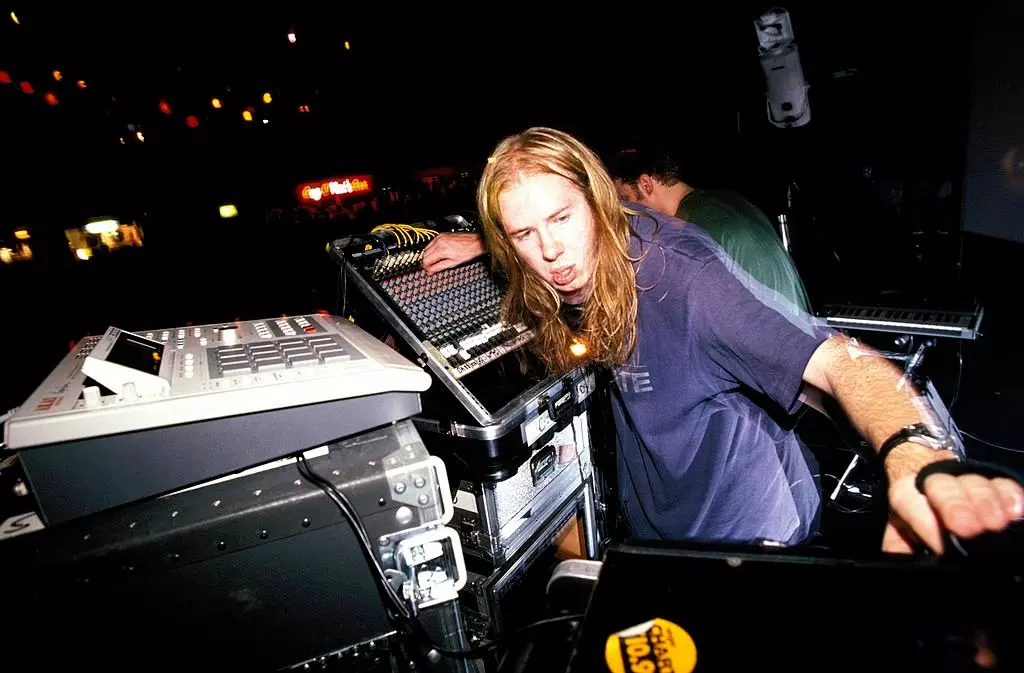
How 1995 Became The Year Dance Music Albums Came Of Age
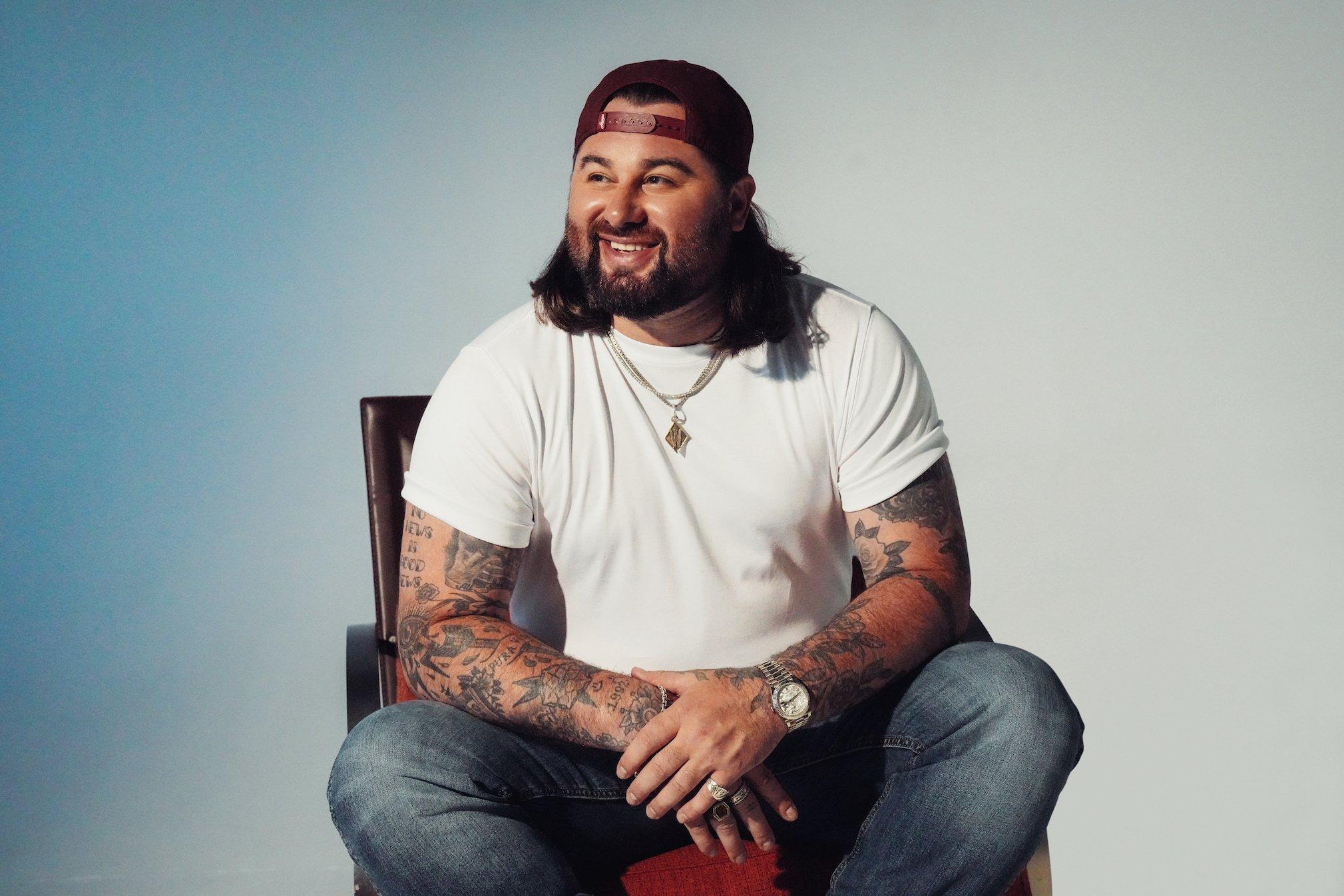
Photo: Jody Domingue
interview
Koe Wetzel On How New Album '9 Lives' Helped Him Tap Into His Feelings
After establishing himself as an outlaw country act, Koe Wetzel wanted to dig deeper with his fifth studio album. The buzzy star details how new collaborators and unintentional therapy helped him show a new side of his artistry.
The word "rabid" may often be tossed around in conversations about fan bases, but Koe Wetzel's die-hard followers truly deserve the distinction. A quick search of the Texas-born singer/songwriter's fans reveals videos of Wetzel breaking up audience fights, arguments over featured vocalists and many, many Koe-inspired tattoos.
So, what is it about the 32-year-old country star that gets people so riled up? For starters, Wetzel, like Zach Bryan or Cody Jinks, is an outsider in the genre. He found his footing and honed his unorthodox sound — which defies traditional genre conventions to include influences from hard rock and hip-hop — as part of the Texas music scene rather than on Nashville's Music Row, the genre's commercial epicenter. Wetzel debuted in 2015 with Out on Parole, an album released under the name Koe Wetzel and the Konvicts. That record and its follow-up, 2016's Noise Complaint, made Wetzel a star on the college touring circuit, and by the time 2019's Harold Saul High was released, he was charting on Billboard while fielding management and label offers.
Wetzel's rough-and-tumble persona is another draw. He's outlaw country in his music and in life, with the Feb. 28 date of his 2016 arrest for public intoxication now known as "Koe Wetzel Day." He's known for working hard and partying harder — though, as he tells GRAMMY.com, he hopes to soften that image with his new album 9 Lives, out now.
As Wetzel puts it, at the heart of his gritty, irreverent persona is "just a goofball" who "probably should" go to therapy more often. Accordingly, his songwriting on 9 Lives is his most vulnerable to date, mingling meditations on fame and mental health with party anthems and hardscrabble tales of life on the road. Produced by Gabe Simon (Noah Kahan, Lana Del Rey), the record takes the gritty, rough-hewn country rock of Wetzel's earlier releases and lets it breathe a bit, adding touches of pop and roots to his grunge-leaning, hip-hop inspired beginnings.
Highlights on the record include the gritty and groovy title track and "Bar Song," a hypnotically infectious ode to a wild night out; "Leigh" shows off Wetzel's comedic side, as he playfully laments falling for "girls with names ending in Leigh." He also includes two drastically different covers: "Depression & Obsession" by late rapper XXXTentacion, and "Reconsider" by Keith Gattis, a country singer/songwriter who died in 2023 — further proof that Wetzel is anything but your typical country artist.
On the album's July 19 release, Wetzel chatted with GRAMMY.com about his switch-up with 9 Lives, from recruiting a new producer to covering a rap song and more.
It's rare to speak to an artist on an album release day, so I'd love to hear how your day is going and what the feedback from your fans has felt like so far.
I'm just glad that everybody's taken [the album] in the way I wanted them to, you know? I didn't know how people were going to react to it, because it is a little bit different from the sound that we put out before. But the reaction has been great. I think people are getting a little bit more of a feel for the stuff that we put out in our earlier years.
Your fan base is so passionate, and it seems like they are also really open to you taking risks and hearing new sounds from you. Does that resonate with you?
Yeah, for sure. It's not that they were getting used to the same sound we had been putting out for the last couple of records, but I felt like they were wanting something a little different than the country rock stuff. And I think with this record, we give them that. We're giving them something that they haven't heard from me before.
Take me back to the early days of plotting this record. What got the ball rolling for you?
Well, we really didn't go into it expecting it to be a full record. We hadn't put out music in a while, so we went into it with [the goal of] get[ting] a couple singles out, just to get stuff going for a record, possibly, in the future. I hadn't put out my music in almost two years at that point. And so, the idea was to go in and write some newer stuff. I knew the direction that I wanted it to go — a little bit softer, more honest, vulnerable route.
We got in [the studio] with Gabe Simon and Amy Allen and Carrie K and Sam Harris in El Paso, and we were there for, I think, two or three days. We wrote four songs: "Damn Near Normal," "Sweet Dreams" and a couple other tunes. We kind of sat back and looked at everything, and it all came really easy for us.
We looked back like, "All right, man, this sounds great. We should do it again." So, we hooked back up in Nashville at RCA, and we knocked out a couple more. I think we did four or five more songs in a couple of days there. Before we knew it, we're like, "Man, we got a whole record in there." It wasn't planned at all.
It must feel good to go in without any major expectations and come out of the studio with music that fits your vision.
Yeah, for sure. Gabe Simon — he really brought that out. It was my first time working with him. It was kind of scary, going in to write and work with somebody that you've never met before and being so open and honest with them. He pulled out everything that made all those songs [right for] the record.
It sounds like the two of you have a special creative partnership. What do you think it is about your work with Gabe that made him the right fit for the record?
One thing is just us coming from two different worlds. I'm a Texas guy, and he's coming from Nashville. It's just those two worlds colliding, pretty much. And he really cared about me and cared about my life, — things that are going on in my life instead of just being about the music. He cares about my well-being. We're friends now, and he'll hit me up on any given day and ask, "How you doing? How you feeling?" It has nothing to do with music. That's the type of dude Gabe is.
I think that played a big part in this record. Of course, he cared about the music, but he also wanted everybody to understand the stories that were being told.
You mentioned earlier that you get into more vulnerable territory on this record. What was it like for you to open up in that way in your music?
Honestly, it was kind of freeing. I don't go to therapy as much as I probably should. And I've said this a couple of times, that when I first met Gabe and Amy and all them, they all sat me down and picked my brain, just trying to get song ideas and [figure out] which way I wanted to go with the record. I always say that was my first real therapy session. And it was total strangers.
I don't talk about my feelings and stuff as much as I probably should, so whenever I get to write this music and play this music, that's pretty much how I express how I feel.
On the other end of the spectrum, you're great at incorporating humor into your songwriting. On this record, I'm particularly thinking about "Leigh," which is just so clever. What role does humor play in your writing process?
I'm a goofball. [With] my persona, people want to think I'm just this hardass, kind of outlaw dude, but I'm really just a goofball. I like to have a lot of fun. I like my records to have a lot of fun. So throwing in songs like that to keep people on their toes, you know, it's just to let them know it's not always so serious. It's a lot of fun and games.
We had a lot of fun making that song. At first, it kind of started off as a joke, and then we kind of sat back like, "Holy s—, this is pretty good. This is a fun song." We can't wait to play that one.
The two cover songs on the record fit so well, even though they are from drastically different artists, XXXTentacion and Keith Gattis. How did you choose those, and what made them fit the rest of 9 Lives?
Keith Gattis, I didn't really get to know him or do a deep dive into his music while he was alive. He passed away last year. And Charlie Robison was one of my favorite Texas artists growing up. They passed away pretty close to each other last year.
Once I figured out that Keith wrote a lot of Charlie's songs, I really dug into his music a lot more… Something inside me was just like, "Yo, you gotta cut this song." I feel like it rounded out the record. We just tried to do it as much justice as possible.
[It was] kind of the same with "Depression & Obsession." XX is one of my favorite underground rappers. I love that era of music. I love what he did. He was another artist that was gone too soon. There's no telling what more we could have gotten from him. So, I wanted to do it justice and give a nod to them by putting those songs on the record.
You have Jessie Murph joining you on "High Road." How did the two of you connect?
Ron Perry with Columbia, he signed her a couple years ago. When we signed with Columbia, he asked if I'd heard of Jessie Murph. I wasn't familiar with her at the time. Then I looked her up and instantly became a fan. She's a f—ing superstar. Her voice is amazing.
We talked about having a duet on this record, but I couldn't find a singer that I wanted to have on the record. But it was kind of easy because Jessie worked with Columbia and, like I said, I was a huge fan. So, we hit her up. We let her put her own spin on it, and she absolutely crushed it.
You're certainly busy enough, with a new record out and a tour coming up. What else are you looking forward to in the second half of 2024?
More new music. We're already trying to get more new music going. We've got a lot of songs that are still in the vault that probably should have made the record but it just didn't feel right at the time. I can't really say a whole lot, but we've got a lot of songs in the vault and I'm still writing. So, once the tour's over with, we're hoping to put on some new music pretty quick.
Latest News & Exclusive Videos

Watch Henry Moodie Share His Epiphone Guitar
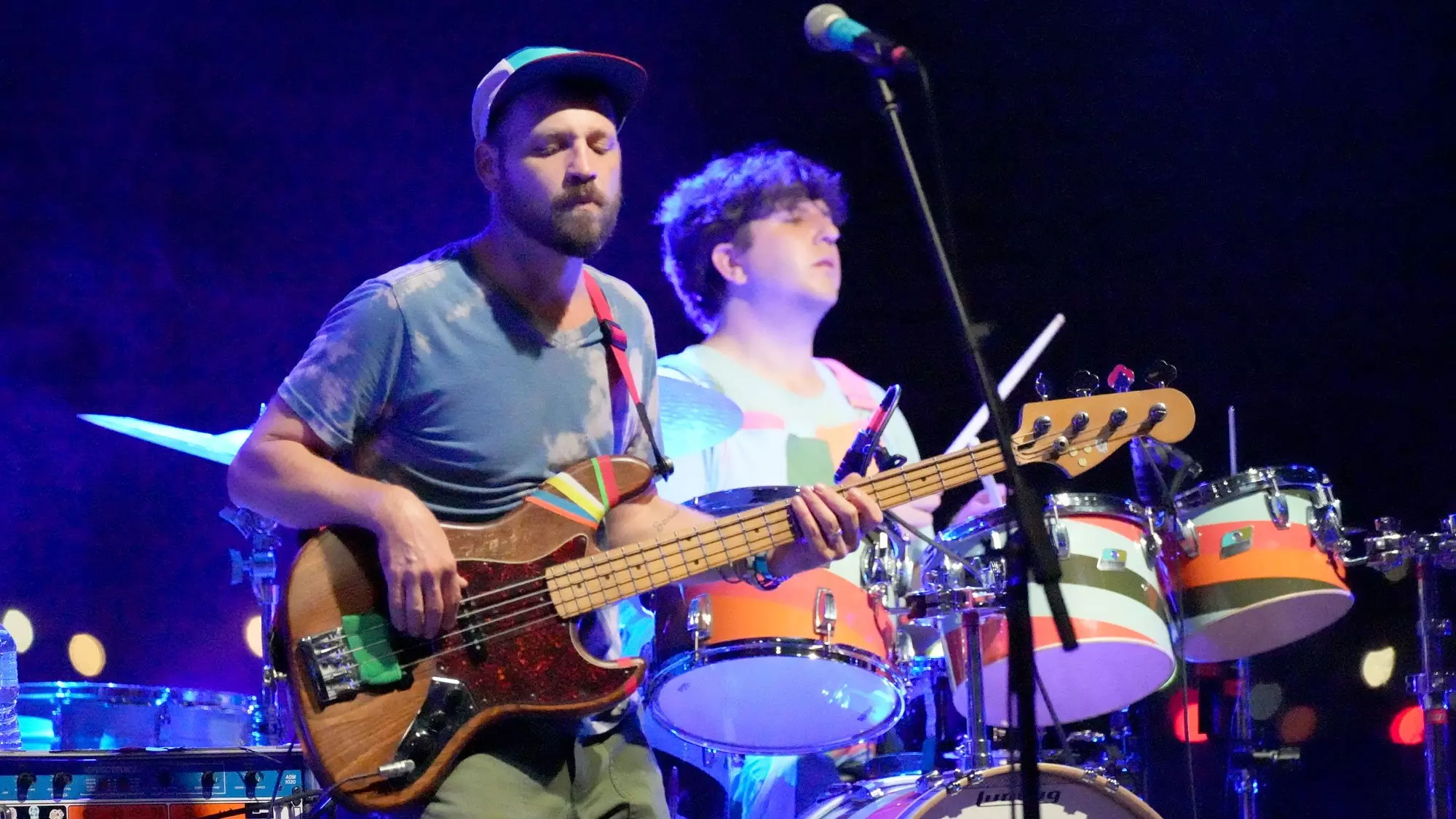
Still Barking After All These Years: Dr. Dog On Low-Key Longevity And Their New Self-Titled Album

Cults' Evolution: Madeline Follin & Brian Oblivion Discuss Their Upcoming Album 'To The Ghosts'
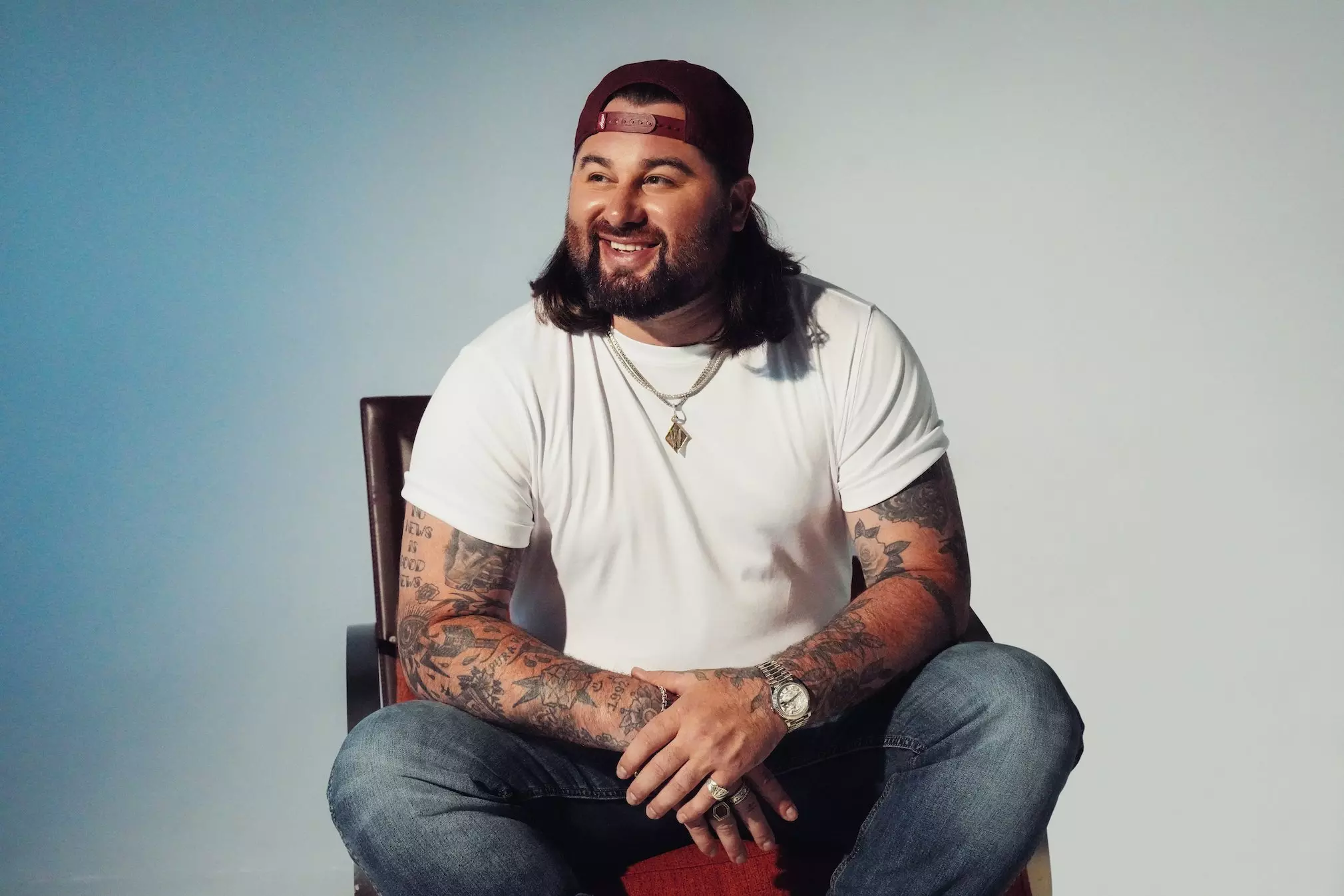
Koe Wetzel On How New Album '9 Lives' Helped Him Tap Into His Feelings
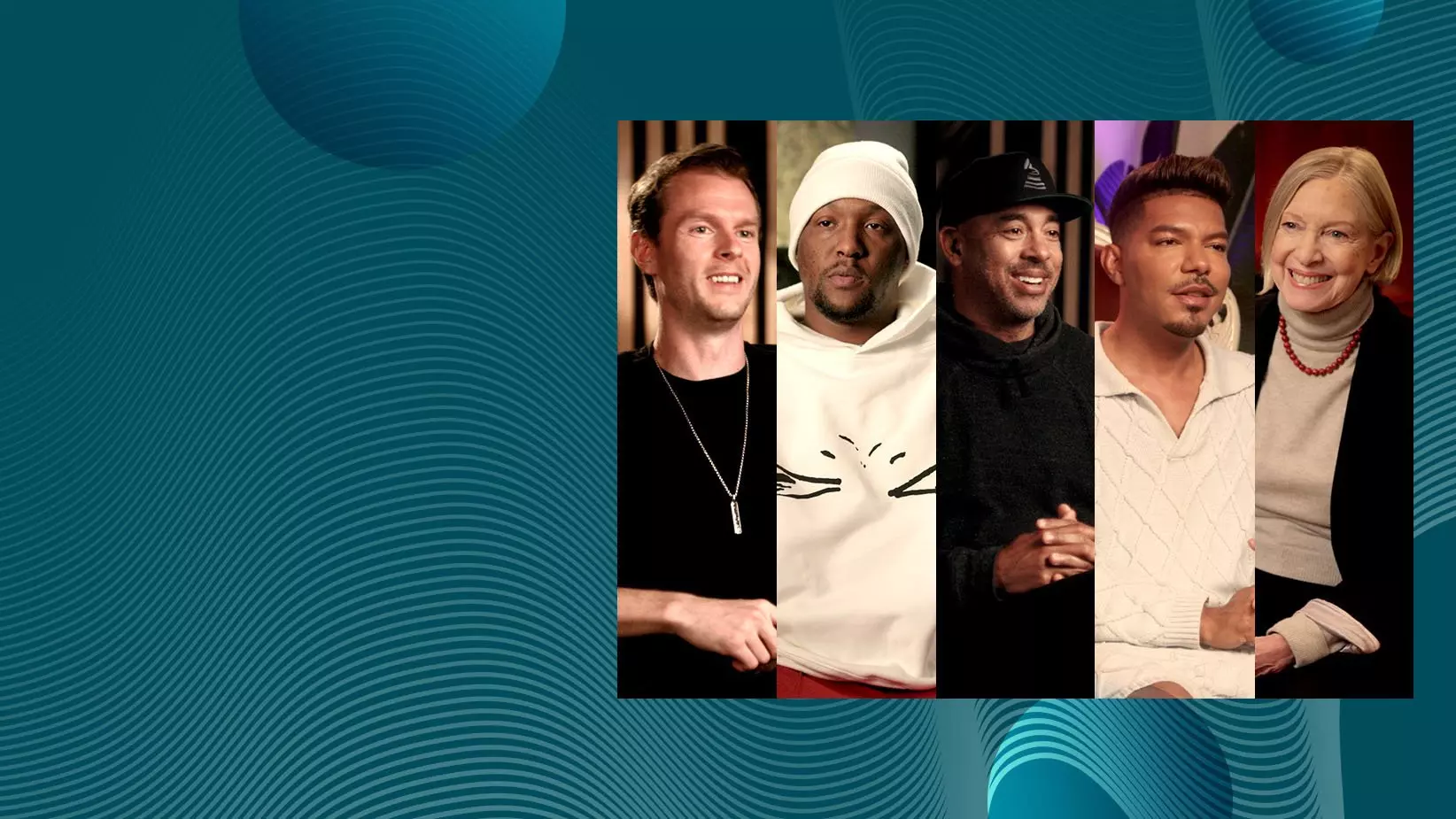
The New GRAMMY GO Music Production Course Is Now Open: Featuring GRAMMY Winners Hit-Boy, CIRKUT, Judith Sherman & More
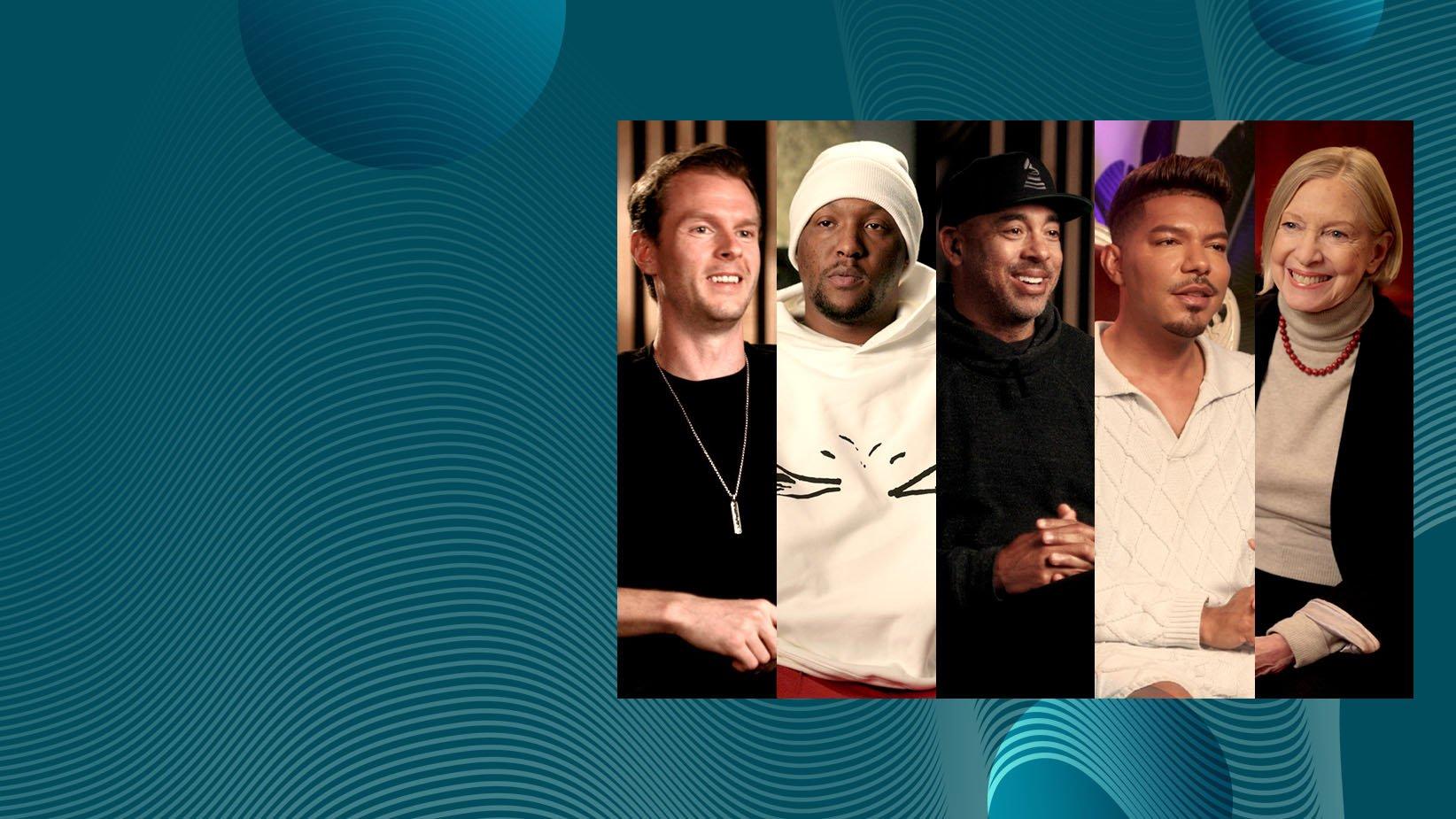
Photos Courtesy of the Recording Academy
news
The New GRAMMY GO Music Production Course Is Now Open: Featuring GRAMMY Winners Hit-Boy, CIRKUT, Judith Sherman & More
Enrollment is now open for GRAMMY GO's new specialization, "Music Production: Crafting Award-Worthy Songs," featuring appearances by GRAMMY winners and nominees. Learn music production and creative strategies from today's industry leaders.
The Recording Academy continues its mission to empower music's next generation with the launch of its second specialization in the GRAMMY GO platform: "Music Production: Crafting Award-Worthy Songs."
This new course, a partnership between the Recording Academy and leading online learning platform Coursera, aims to bolster the technological and audio skills of music producers of all levels. The course, taught by Howard University professor and GRAMMY nominee Carolyn Malachi, features appearances by three-time GRAMMY winner and rap icon Hit-Boy, chart-topping and GRAMMY-winning producer/songwriter CIRKUT, artist and celebrity vocal coach Stevie Mackey, five-time GRAMMY nominee and Recording Academy CEO Harvey Mason jr., and 15-time GRAMMY winner Judith Sherman.
Enrollment for "Music Production: Crafting Award-Worthy Songs" is open now.
Mixing a unique blend of theory and practice, the course teaches music creators of all levels the advanced skills and tools to develop the mindset and confidence of an experienced producer and produce songs of the highest industry standards across all genres. Explore the wide-ranging roles of a music producer, develop critical listening and analysis skills, and master the technical aspects to create music and compositions that cut through the noise. The course's applied learning approach allows learners to sharpen their pre-production skills, utilize Digital Audio Workstations (DAWs) effectively, and produce vocals, instrumentals and samples collaboratively. Through critical listening exercises and discussions, learners will refine their abilities to deliver professional-quality demos.
To celebrate the launch, the Recording Academy will host an Instagram Live session today (Tuesday, July 23) at 4 p.m. PT/7 p.m. ET with Harvey Mason jr. and Stevie Mackey. The session will include a discussion on the evolving role of music producers, strategies for working with artists, key elements of top-notch productions, common mixing mistakes, and tips for keeping the creative process fresh. Enrollment details for the course will also be shared during the live session.
Building on the success of its first specialization, "Building Your Audience for Music Professionals," GRAMMY GO continues to offer industry-focused education tailored for emerging and established music creators and professionals alike. The innovative platform provides learners with real-time insights from leading music industry figures, ensuring the content remains practical and up to date. GRAMMY GO will also serve as an essential tool in the Recording Academy's global expansion into Africa and the Middle East, empowering music creators through enhanced training, bridging knowledge gaps, and fostering connections within the global music community.
Launched in April in partnership with Coursera, GRAMMY GO is the Recording Academy's first creator-to-creator platform, offering innovative courses tailored for both emerging and established music professionals. The initiative accelerates the Academy's global mission and reinforces its commitment to music education, providing a seamless bridge between all Academy initiatives.
Learn more about GRAMMY GO and the "Music Production: Crafting Award-Worthy Songs" and "Building Your Audience for Music Professionals" specializations.
More Music Education News & Initiatives

The New GRAMMY GO Music Production Course Is Now Open: Featuring GRAMMY Winners Hit-Boy, CIRKUT, Judith Sherman & More
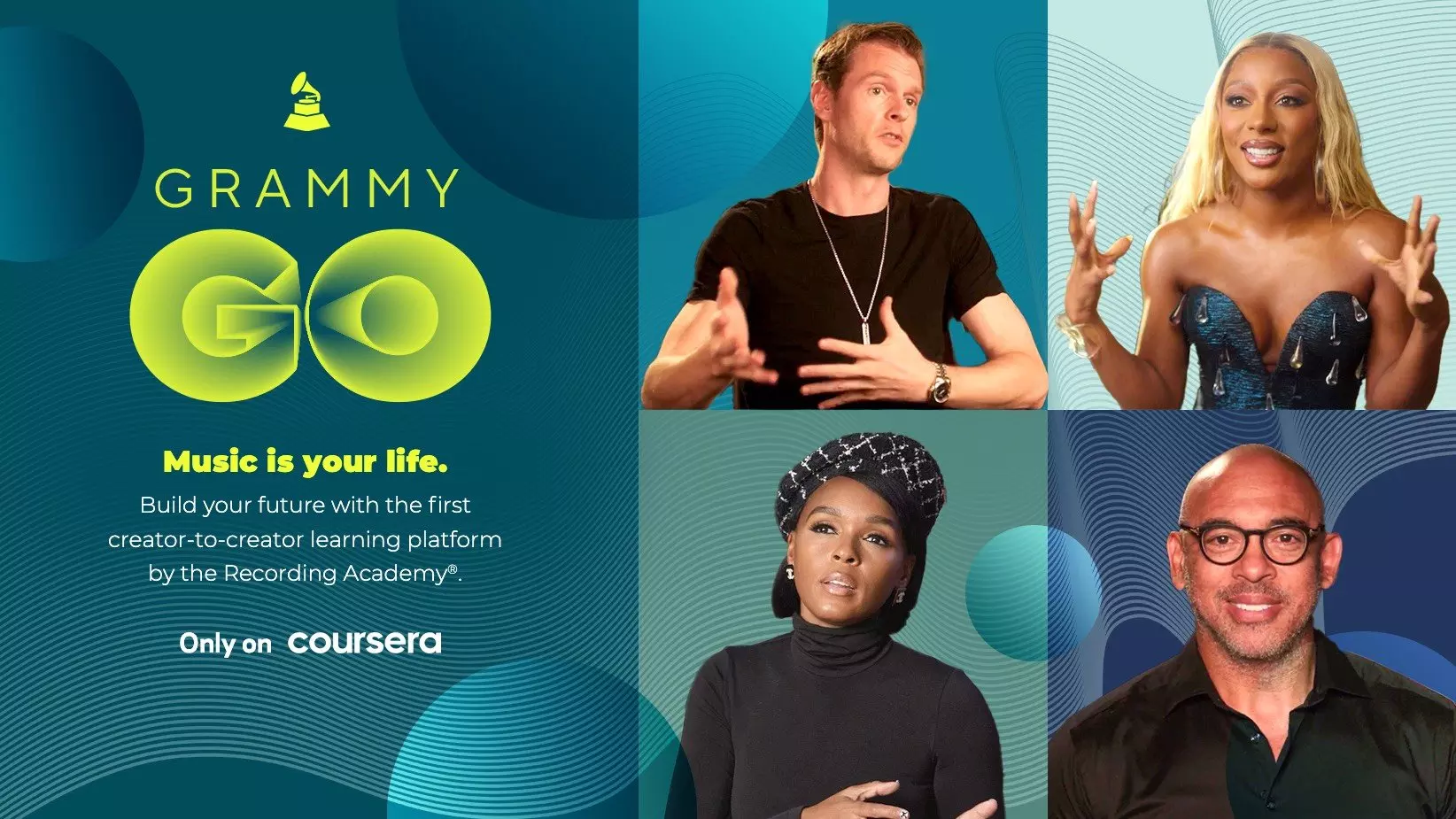
Recording Academy & Coursera Partner To Launch GRAMMY GO Online Learning Initiative
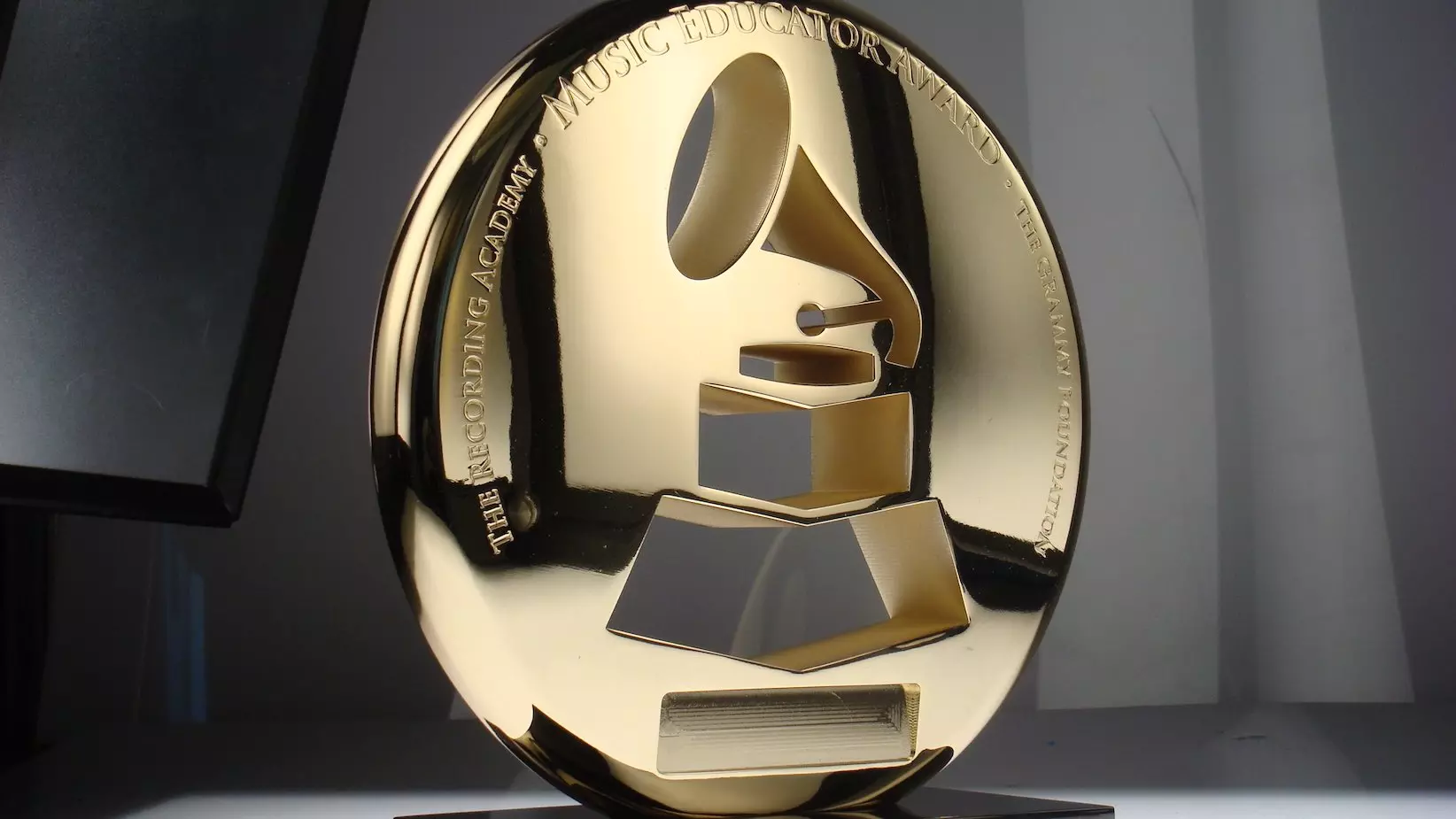
25 Semifinalists Announced For The 2024 Music Educator Award
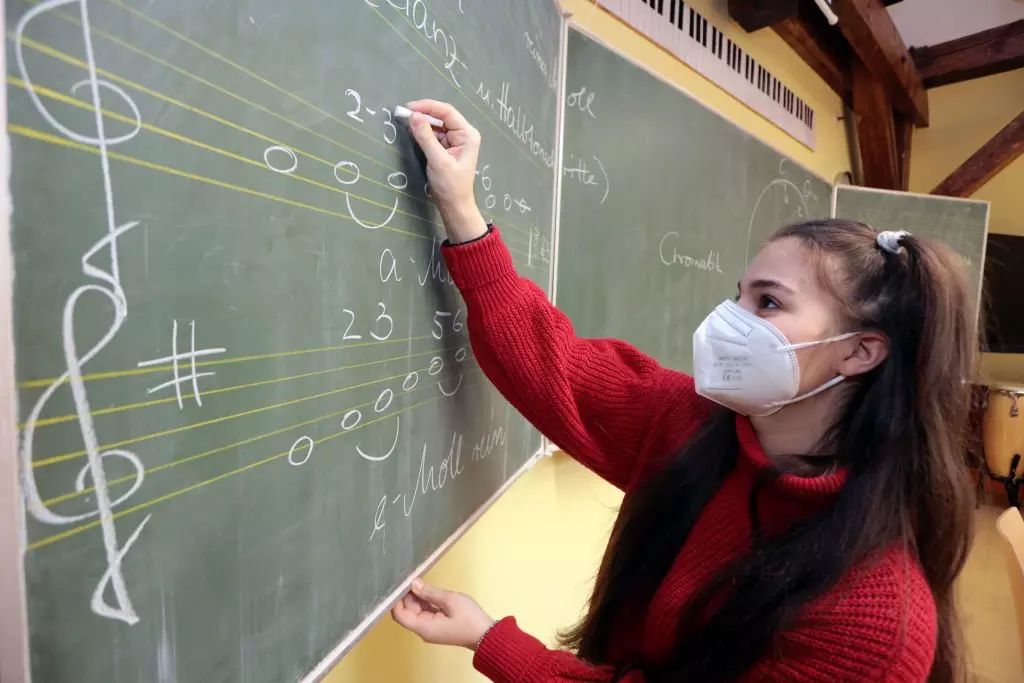
5 Music Teachers Share The Transformative Power Of Music Education
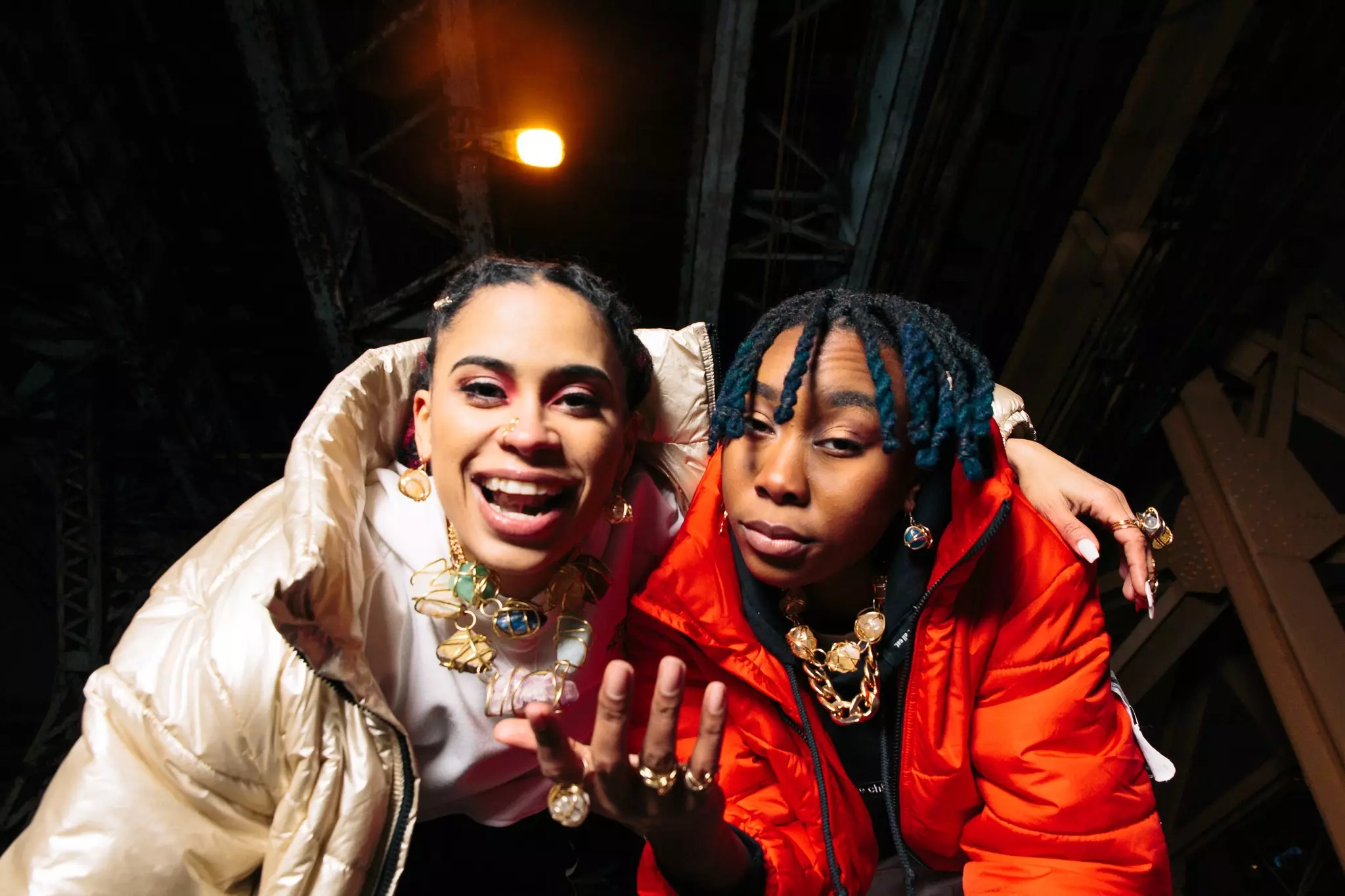
Meet Mother Nature, The Chicago Rap Duo That Teach & Live Self-Expression Through Their Miseducation Of HipHop Youth Workshops

